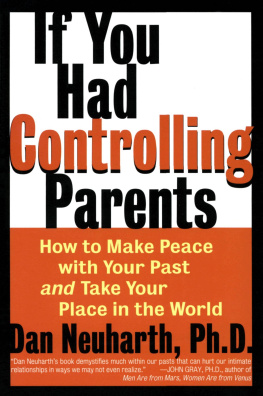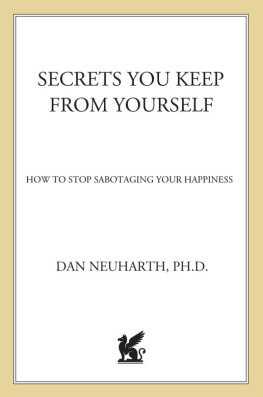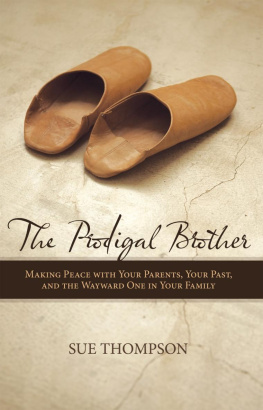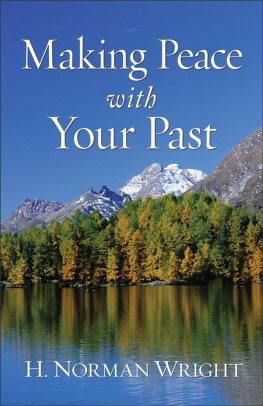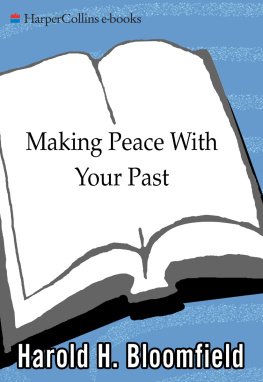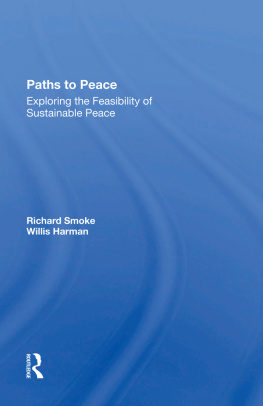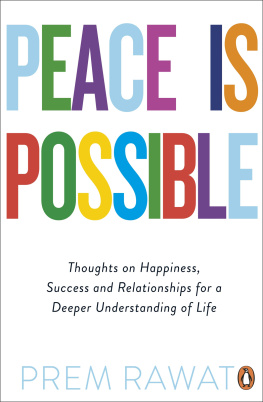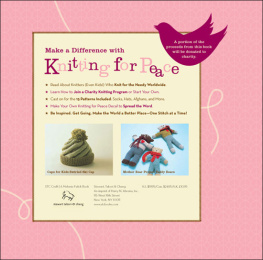Dan Neuharth - If You Had Controlling Parents: How to Make Peace With Your Past and Take Your Place in the World
Here you can read online Dan Neuharth - If You Had Controlling Parents: How to Make Peace With Your Past and Take Your Place in the World full text of the book (entire story) in english for free. Download pdf and epub, get meaning, cover and reviews about this ebook. year: 2009, publisher: HarperCollins e-books, genre: Home and family. Description of the work, (preface) as well as reviews are available. Best literature library LitArk.com created for fans of good reading and offers a wide selection of genres:
Romance novel
Science fiction
Adventure
Detective
Science
History
Home and family
Prose
Art
Politics
Computer
Non-fiction
Religion
Business
Children
Humor
Choose a favorite category and find really read worthwhile books. Enjoy immersion in the world of imagination, feel the emotions of the characters or learn something new for yourself, make an fascinating discovery.
- Book:If You Had Controlling Parents: How to Make Peace With Your Past and Take Your Place in the World
- Author:
- Publisher:HarperCollins e-books
- Genre:
- Year:2009
- Rating:5 / 5
- Favourites:Add to favourites
- Your mark:
- 100
- 1
- 2
- 3
- 4
- 5
If You Had Controlling Parents: How to Make Peace With Your Past and Take Your Place in the World: summary, description and annotation
We offer to read an annotation, description, summary or preface (depends on what the author of the book "If You Had Controlling Parents: How to Make Peace With Your Past and Take Your Place in the World" wrote himself). If you haven't found the necessary information about the book — write in the comments, we will try to find it.
Dan Neuharth: author's other books
Who wrote If You Had Controlling Parents: How to Make Peace With Your Past and Take Your Place in the World? Find out the surname, the name of the author of the book and a list of all author's works by series.
If You Had Controlling Parents: How to Make Peace With Your Past and Take Your Place in the World — read online for free the complete book (whole text) full work
Below is the text of the book, divided by pages. System saving the place of the last page read, allows you to conveniently read the book "If You Had Controlling Parents: How to Make Peace With Your Past and Take Your Place in the World" online for free, without having to search again every time where you left off. Put a bookmark, and you can go to the page where you finished reading at any time.
Font size:
Interval:
Bookmark:
How to Make Peace with Your Past and Take Your Place in the World

To the children, past, present, and future,
who lack a voice in their upbringing .
May they find their voices
through the stories and insights shared here
and
To Marly, with love and gratitude
for her artistry, brilliance, beauty, and soul
My profound thanks and appreciation to:
Patti Breitman, superagent, for believing in this book so much and working so brilliantly to sell it.
The incredible staff at Cliff Street/HarperCollins and particularly: Diane Reverand, publisher, for her vision, wisdom, and enthusiasm; Julia Serebrinsky, editor, for her grace and attention to detail; and Pamela Pfeifer, public-relations genius.
The courageous pioneers who volunteered to be interviewed for this book and, in so doing, made new meaning of their own difficult childhoods by helping countless others.
My psychotherapy clients, who teach me more each day.
My steadfast mens group: Scott Cameron, Ph.D.; David Frankel, Ph.D.; Scott Lines, Ph.D.; Mike Shuell, Ph.D.; Alan Vitolo, Ph.D.; and Robert Wynne, Ph.D.
My original family: with love to mother Loretta, father Al, and sister Jan.
My brother-in-law Joseph Keusch, niece Danielle, and nephew Alec, all of whom bring smiles to the world.
Sandy the wonderdog, for offering unconditional love and unlimited play.
My mentors and teachers: Walter Anderson; Robin Acker, M.A., MFCC; Adria Blum, Ph.D.; Bernie Carter, M.A., MFCC; Janeece Dagen, M.A., MFCC; Sandy Graber, M.D.; Roberto Gurza, M.A.; Jerry Schwartz, Ph.D.; and Lucy Scott, Ph.D.
Shannon Tullius and the staff, presenters, and volunteers of the Maui Writers Conference.
Manuscript readers and supporters: Joan Cox, Lori Hurwitz; and especially Brooke Passano, M.A., MFCC.
And, finally, my partner, Marly Perkins, Ph.D., for her unwavering support, countless hours of reading drafts, and always on-target suggestions. Marly, this book would not exist had you not contributed all your gifts.
Some readers may find that coming to grips with a difficult childhood can spark upsetting feelings. Far from being uncommon, this frequently happens in psychotherapy, which is designed to explore troubling feelings in a safe setting. This book is not intended to be a substitute for formal psychotherapy, though many readers may find it a useful adjunct to treatment. I urge any reader who experiences abnormal depression or anxiety to consult a licensed psychotherapist .
W hen I use the word parents in this book, Im talking about the adults who exerted the most significant control over your childhoodbirth parents, guardians, grandparents, stepparents, aunts or uncles. I tend to use parents, plural, for grammatical simplicity even though only one parent or adult figure in your family may have been the controller.
This book includes case studies drawn from comprehensive interviews with a diverse group of forty women and men, ages twenty-three to fifty-eight, who grew up controlled. Collectively, these forty adults have more than six million hours experience growing up in controlling environments. (Detailed information about the participants and interviews can be found in Notes on Research on pp. 239240.) Although each persons story was unique, similarities in how they were controlled transcended age, ethnicity, socioeconomic status, gender, sexual orientation, and family historyand strongly mirrored the patterns Ive encountered with private clients from controlling families.
I promised confidentiality to all participants so they could talk openly and honestly. Therefore, all names are pseudonyms. I have also slightly altered age, profession, or other details that might identify those interviewed. In some cases, to honor confidentiality I have combined details of more than one persons experience into a composite character. Where needed, I have altered quotes for grammar or clarity. Other than these alterations, every story, incident, and observation you will read was as told to me. None of it is fiction, even though at times the enormity of control may seem unbelievable. I hope the stories and insights will touch you, teach you, and help you to heal, as they have me.
Ive learned a great deal about control and healing from my clients and those I interviewed, but there is much I have still to master. I have yet to work out all the mixed feelings and control-related problems between myself and my own parents. You, not I, are the expert on your life, needs, and upbringing. I urge you to take this book at your own pace and on your own terms. I want you to feel in control as you read. You dont have to agree with the entire book to find some parts pertinent. And keep in mind that while controlling parents often view the world in all-or-nothing terms, few situations in life are absolute. My goal in writing this book is to remind you that you are not alone, that you can make sense of your childhood, and that you can heal yourself.
This is a book of discovery and resolution. I invite you to discover what may lie underneath some of your most stubborn and troubling habits, patterns, or problems. I urge you to join me on a path toward resolving anything unfinished with your parents, whether they are living or dead. I ask you to fashion a more clear and full view of your upbringing so that you can make peace with your past.
Animals kill their young if they dont want to care for them, but they dont torture them for years .
A LICE M ILLER
I f your parents controlled you in unhealthy ways, they may have unwittingly planted land mines in your psyche. As a result, you may tiptoe through life expecting buried danger, not treasure, in your path. You may waitand waitfor permission to love, succeed, and feel content. Permission youre not sure how to get. Permission you may have difficulty granting yourself.
Well, you are not alone. An estimated one in thirteen adults in the United States has grown up with unhealthy control. Thats more than 15 million people. (See Notes on Research on pp. 239240.)
Unhealthy control has lasting costs. Such an upbringing can put you at risk for depression, anxiety, poor self-image, addictions, self-defeating behaviors, and stress-related health problems. Lacking a protective sense of self, you may live with too little freedom, too little meaning, and, most of all, far too little self-love. Growing up controlled means inheriting habits and beliefs that complicate relationships, decision making, spirituality, and emotional development. As one thirty-seven-year-old teacher raised in a white-knuckle household said, I feel like Im missing a couple of big chunks on how to be a person.
An unexamined upbringing may lead us unwittingly to replay old patterns with our mates so that our mates come to remind us of our parents. We may misread friends, neighbors, or coworkers who remind us of our parents. We may inadvertently use our children as vehicles to work out unfinished business with our parents. We may unintentionally inflict suffering on ourselves and those around us as we act out old, controlling ways.
After were grown, our controlling parents may still treat us as children. More frustratingly, we may feel as helpless as children when were around our parents. We may struggle to get closer toor find greater distance froma controlling parent. We may even come to understand their motivation for controlling us, yet be at a loss about reconciling that knowledge with our lingering hurt, disappointment, or anger.
Font size:
Interval:
Bookmark:
Similar books «If You Had Controlling Parents: How to Make Peace With Your Past and Take Your Place in the World»
Look at similar books to If You Had Controlling Parents: How to Make Peace With Your Past and Take Your Place in the World. We have selected literature similar in name and meaning in the hope of providing readers with more options to find new, interesting, not yet read works.
Discussion, reviews of the book If You Had Controlling Parents: How to Make Peace With Your Past and Take Your Place in the World and just readers' own opinions. Leave your comments, write what you think about the work, its meaning or the main characters. Specify what exactly you liked and what you didn't like, and why you think so.

